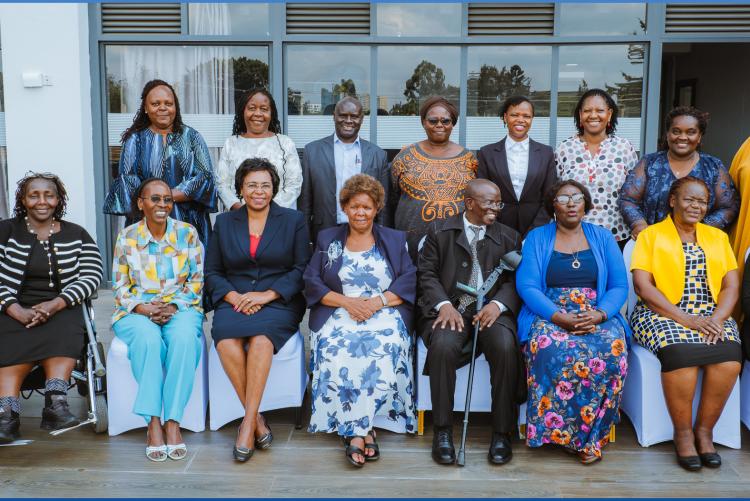Women in Leadership in Economics
The economics field has progressed toward inclusivity, yet the gender gap in leadership roles persists. Women's efforts to enter the economics workforce have not translated into equal representation in influential and authoritative positions. This disparity raises important questions about the barriers that continue to hinder women's advancement within the discipline? It also calls for an examination of how societal norms, institutional biases, and workplace dynamics shape women's experiences, pathways, and progress? In pursuit of answers, the University of Nairobi’s, African Women Studies Centre hosted a high-level consultation with women in leadership from both public and private sectors in Kenya, which took place at the Swiss-Belinn Hotel on October 2, 2024.
Globally, women constitute only 21% of faculty members in economics departments. Although they make up a third of the public sector’s economists, their presence in leadership roles is still minimal. This underrepresentation not only impacts individual careers but also limits the diversity of perspectives in economic policymaking and discourse. Women leaders in academia, the private, and the public sectors who attended the session agreed with these statistics as they shared their experiences, achievements, and challenges. The session featured a blend of panel discussions, sharing of experiences on pathways taken, and strategies used by the women leaders to rise to leadership positions. The meeting highlighted the complex reasons for the scarcity of leading women economists, shedding light on both the systemic challenges they face and the pathways that can foster a more equitable future in the field.
Prof. Kiriti-Ngángá the Principal Investigator of the study assessing the “Participation of Women in Economics in Leadership and Management in Academic Institutions in Kenya” shared a report on the status of the women economists in leadership roles, with a particular focus on academic institutions. This report revealed systemic issues contributing to the exclusion of women and the expansion of the gender gap, encapsulated by Daisy Amdany, Executive Director of CRAWN Trust, who stated, “We are trying to correct a system that is not inclusive instead of designing inclusive systems.” On the other hand, Prof Kiriti noted, “The predominance of men in boardrooms is mirrored in student enrollment; for example, at the UoN Department of Economics and Development Studies, only 42% of the enrollees were female in 2023, despite this being a crucial source for future university teaching staff positions”.
The Pipeline Problem
The academic pipeline in economics is crucial for transitioning into leadership positions within the sector. However, data reveals a concerning trend: few women progress through this pipeline into influential roles. For instance, female enrollment in Economics and Development Studies has increased slightly—from 38% in 2020 to 42% in 2023— yet males continue to dominate the field, comprising 58% of enrollments. At the PhD level, which is essential for academic positions, the gender disparity persists, with women constituting only 28.6% of the faculty members. A closer look at faculty representation shows a stark imbalance. Among the staff, only ten out of thirty-five members are female, with just 5.7% of lecturers being women and only 8.6% holding associate professor titles.
To address these challenges, the following strategies were proposed:
- Understanding Women's Needs: Gathering insights into the desires of women in economics from their academic and professional environments is essential.
- Promoting Gender Equality Policies: It is critical to advocate for policies that support gender equity, including the enforcement of the two-thirds gender rule within universities.
- Mentorship Opportunities: The establishment of mentorship programs with experienced leaders to guide and support women in economics is key to enhancing retention and career advancement.
- Investing in Professional Development: Providing continuous learning and professional development opportunities is essential for skill enhancement and credibility, paving the way for leadership positions.
- Collaboration with Male Colleagues: Fostering a culture where male colleagues mentor and support their female colleagues can create a more supportive and collaborative work environment.
Prof. Kabira, Director of the African Women Studies Centre, underscored the need to bring women’s perspectives into policy debates and knowledge creation. The journey to achieving gender parity in leadership for women in economics requires collective action and commitment. Recognizing the obstacles women encounter and enacting targeted strategies can forge paths for knowledge development and leadership advancement.

